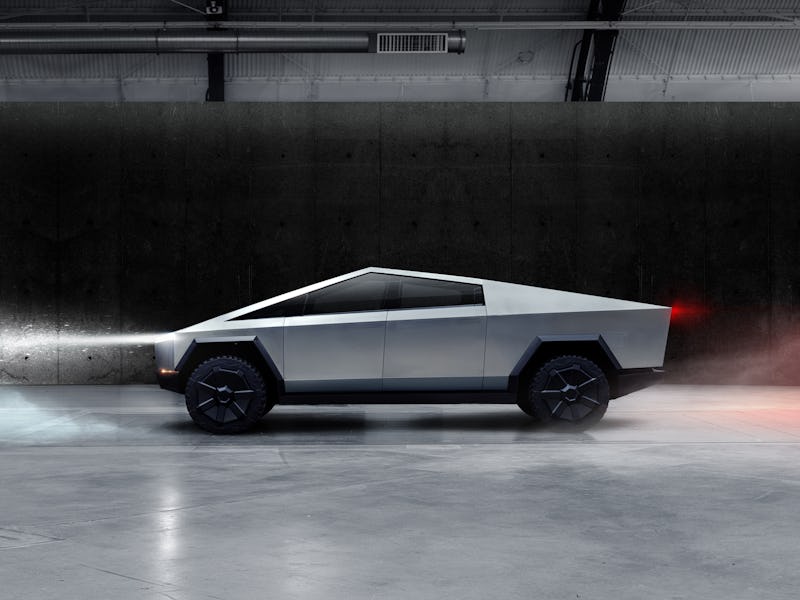Tesla Cybertruck: Elon Musk’s new factory could tackle unexpected challenge
Can Tesla meet the rising demand?

Elon Musk is exploring the possibility of opening a Tesla Cybertruck-focused factory in the United States. The announcement, made by the CEO on his Twitter page Wednesday, comes as evidence suggests the upcoming truck is set to see higher-than-expected demand.
"Scouting locations for Cybertruck Gigafactory," Musk told his 32 million Twitter followers. "Will be central USA."
It could help Tesla meet surging demand. The truck was unveiled November 2019 with a starting price of $39,900 and a release date of late 2021, the final phase of a three-part plan to get electric cars into more consumers' hands. A third-party tracker suggests it's already received over 500,000 pre-orders, more than the Model 3 at the same stage in its life cycle.
Building a new factory could help meet demand. Tesla operates four factories: a Fremont, California production plant, a Giga Nevada factory producing batteries, a Giga New York facility producing solar panels, and a Giga Shanghai factory making entry-level electric cars for the Chinese market. Musk has also announced plans for a Giga Berlin car plant.
Musk dancing at the Giga Shanghai's first vehicle handover event in January.
Where will this new factory be? Musk has declared the need for a Gigafactory on every continent, which would end the difficulties in shipping electric cars worldwide. In his Wednesday post, however, he suggested a location in the central United States.
Last month, Musk hosted a Twitter poll asking about a Giga Texas, which received over 80 percent of votes in favor. It wouldn't be the first facility Musk has established in the state, as SpaceX is currently building the Mars-bound Starship rocket at a facility in Boca Chica.
SpaceX's Boca Chica facility, with a Starship prototype.
A Tesla factory in the central United States could help Tesla meet its high demand, while reaching production rates similar to the big automakers. The Fremont, Shanghai and Berlin facilities are all aiming to produce 500,000 cars per year. That means they could produce 1.5 million cars per year, a seemingly huge number considering Tesla only produced its millionth car this week after 12 years of production. But the big automakers outstrip that rate by a long shot: of the 97 million cars produced globally in 2017, Toyota produced 10.4 million, more than any other automaker. Fifth-placed Ford, which makes the F-150 truck that competes with the Cybertruck, produced 6.4 million cars.
The company will need to ramp up production if it wants to meet demand. Musk suggested during the company's January earnings call that Cybertruck demand could outstrip supply for up to four years. During the call, Musk said that "we've never seen this level of demand," later explaining that the demand "is just far more than we could reasonably make in the space of, I don't know, three or four years."
Third-party surveys have also shown high demand for the Cybertruck. Loup Ventures adjusted its projections after speaking with truck owners and finding positive support for the new vehicle, claiming it could account for 15 percent of Tesla's output when delivery fully ramps up in 2023. Data from UBS shows consumers prefer the Cybertruck over the Fiat Chrysler Ram 1500.
The Inverse analysis
Musk appears to be pumping the brakes on his plans to put a Gigafactory on every continent, but it could help meet the company's most pressing goals.
It's important to remember that Musk wanted to expand internationally in part to help support growth. In February he said that it's "insane to be making cars in California [and] shipping them to Europe and Asia," as it means the American factories need to support every type of regulation and ship them across the world without any issues.
Tesla now has factories in the pipeline for the European and Chinese markets, alleviating the pressure on the American facilities to meet those markets. But the Cybertruck might introduce more pressure, particularly in the United States where the Ford F-150 has been the top-selling car for the past 40 years. With analysts predicting high demand, Tesla may have created more demand on its own doorstep than it expected.